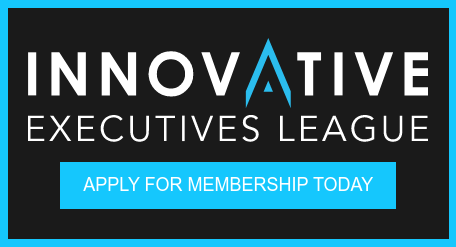
Acquiring (and retaining) innovative talent remains a hot topic for leaders across the country. In Illinois alone, around 379,000 jobs are currently unfilled — up 56.6 percent from the same period in 2021. During the February Innovative Executives League™ meeting, six members shared their ideas about how to better recruit, develop, and retain top talent. Here are some insights from the discussion.
Focus on Engagement and Employee Value Proposition
Physical therapy services provider Athletico has dealt with changing expectations of healthcare workers since the beginning of the pandemic by focusing on engagement. The company’s VP of Talent Acquisition, Jen Sommesi, says every leader should “deliberately” think about engagement when acquiring and retaining employees. Chicago employers can engage talent through weekly engagement ratings, exit surveys, and employee feedback that “gets to the root” of key issues within an organization. As a result, employers don’t have to recruit as many new hires and can maintain the intrinsic knowledge garnered by existing employees.
Jen cited research from Gartner about employee value propositions (EVPs), which reveals that people want companies to see them as a “whole person” rather than just an employee. Organizations must nurture deeper connections with talent, be more flexible, have a shared purpose with employees, promote personal growth, and encourage holistic wellbeing.
Compensation and Training Matter
Vibes is a Chicago-based mobile messaging platform for enterprises. Its SVP of Talent and Development, Shaunagh Vollmer, shared that companies can retain employees by reviewing salaries every quarter and ‘upleveling’ compensation as much as possible. (Vibes increased the wages of its engineering team by 20 percent this year.) That’s because it’s more expensive to recruit a new hire than raise the salary of an existing solid performer.
Shaunagh also recommends employers focus on manager training and leadership training to set a standard for how management should operate within an organization. Doing so can reduce attrition. Employers should also create a community for managers to discuss issues and “double down” on training for independent contributors, which can help them grow and develop their careers.
Have a Clear Organizational Vision
SVP of Digital Technical Products at HUB International, Kevin Goulet, says young employees in all industries need to know where their company is heading. He’s seen employers lose talent because their company lacked a solid vision. Organizations need a clear mission with a purpose that everyone in the company can restate.
Leverage Unconventional Talent Sources
Leadership training program i.c.Stars focuses on the “supply side of talent” by taking students from underserved communities with a GED or high school diploma, teaching them technical skills, and graduating them to a job. Amanda Hogan, Director of Corporate Partnerships, shared that the program currently works with 50 participants a year in Chicago. Tech companies are open to this innovative approach to skills development when acquiring new talent, especially since the COVID-19 pandemic and the resulting labor shortage started.
Amanda says Chicago employers typically hire one to two graduates from i.c.Stars. That’s up to five to six after COVID. Program managers from employers are working with “high-aptitude” individuals to ensure their skills are being developed for ever-demanding tech roles. They’re also focused on plotting a career path for each learner, so they have a clear roadmap set for them.
Autonomy Works
Madison Industries takes a novel approach to talent acquisition by searching for “unconventional” sources of talent. Managing Director of Talent Acquisition at Madison Industries, Shelli Nelson, told us about Autonomy Works, an organization that works with adults on the autism spectrum. These adults are smart, committed, and enjoy repetitive work, making them a great fit for certain jobs in a production plant or finance role involving reporting and similar tasks.
Recruit for Potential, Not Skills
Other leaders shared talent acquisition and development strategies that all organizations can incorporate into their workflows. One idea is manager roundtables, where new employees in leadership can ask questions and trade insights without an agenda. Another recommendation is to interview “for potential” rather than “for skills,” allowing recruiters to better match job candidates to roles. Organizations should focus on finding candidates that appreciate the learning, organizational processes, and the potential for personal growth.
Companies can improve talent acquisition and retention by following some of the tips from these six innovation leaders. Interested in learning more or attending our next meeting? Apply to become a member of the Innovative Executives League!

